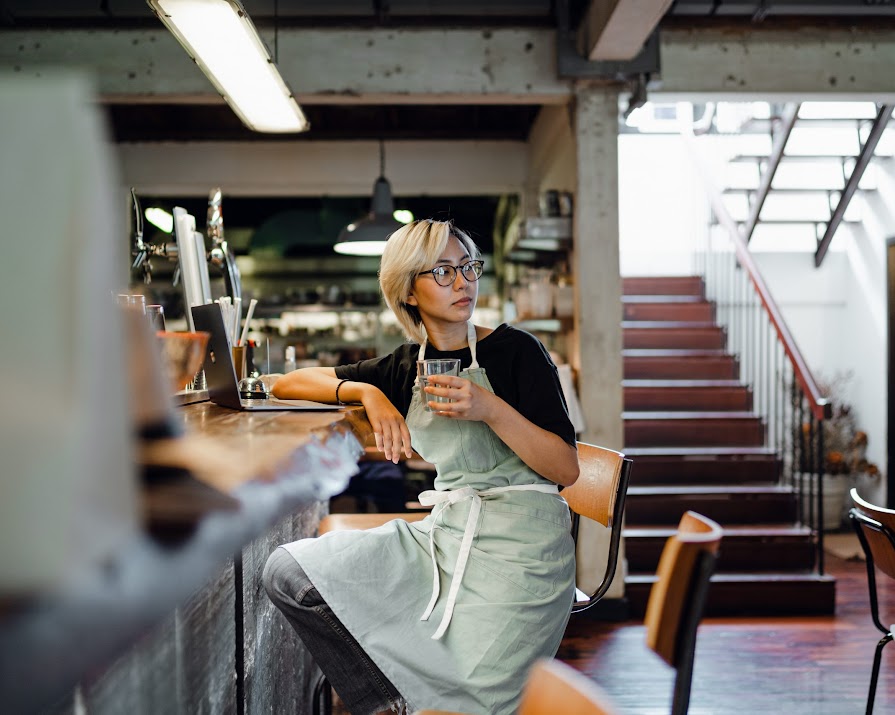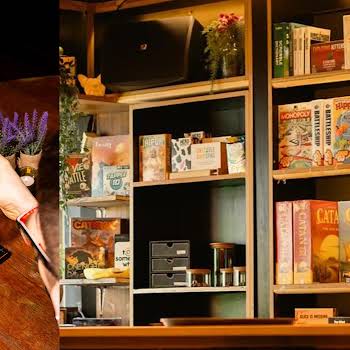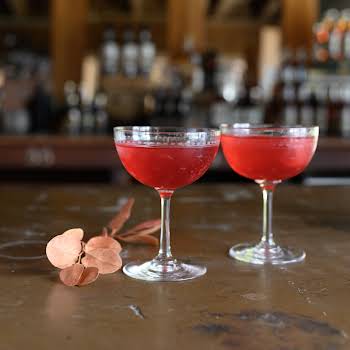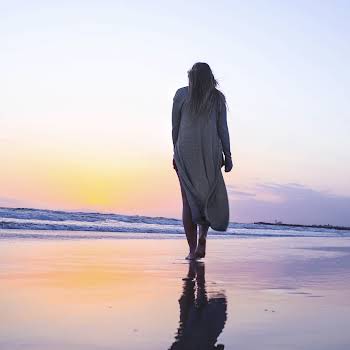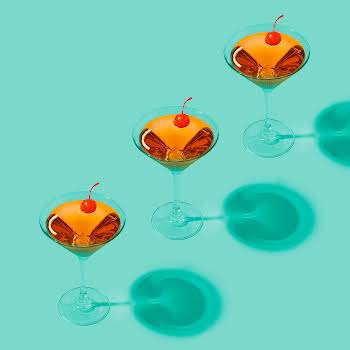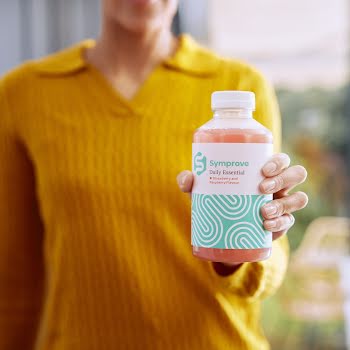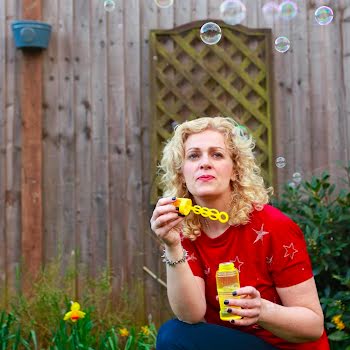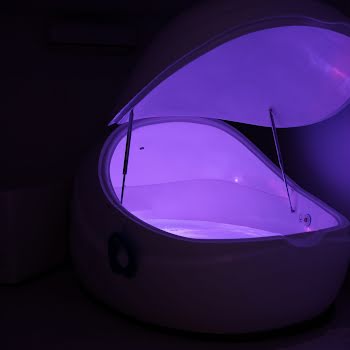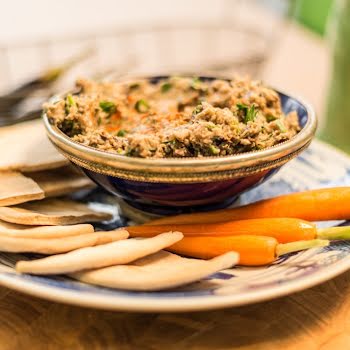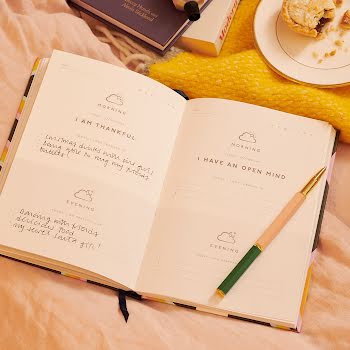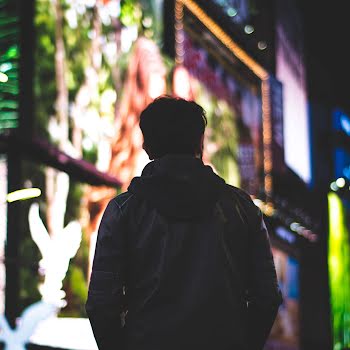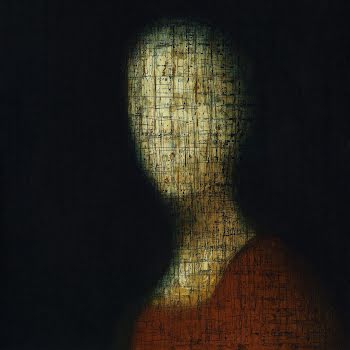Sober curious? Meet the forty-something women giving up alcohol
By Nikki Walsh
09th Jul 2023
09th Jul 2023
Something is happening to the fortysomething woman: she’s thinking about giving up alcohol. Nikki Walsh meets the women taking a sober second look at our drinking culture and asks is it possible to have it all, without the hangover?
Fortysomething Kate Gunn gave up drink as part of a 30-day challenge in 2016. “I knew alcohol was holding me back in some way,” she says, “and the hangovers were getting worse. I’d tried to give up before for Dry January and hated it, but the difference this time was mindset. The last time, I felt I was depriving myself of something, whereas this time it was more like, ‘Well, what can I get from this?’” Her life has improved so much since she gave up, she has written a book: The Accidental Soberista, out now. “I wasn’t an alcoholic by any stretch of the imagination,” she tells me, “but I was alcohol dependent. It’s a huge grey area, and amongst women, there’s a lot of private struggling. Giving up was such a gift for me, I wanted to share that with other people.”
Stylist Jan Brierton, 45, gave up last June. “My husband said I didn’t drink enough to give up, but I felt I was drinking mindlessly. A trip to the local shop for bread and milk included Cider for him and wine for me, and I thought, ‘Well, it shouldn’t be part of the grocery.’” She has no regrets. “I’m very happy with myself for not drinking.”
Others are concerned about their health or their work performance. Siobhan Murray is a resilience coach, psychotherapist and author of The Burnout Solution. “Women come to me signed off work,” she says, “and we realise very quickly that alcohol is part of the problem. It’s so easy for dependency to creep up.” She helps them to recognise their triggers and patterns: why they drink, when and how much. “Once they become more aware, there is a period of bargaining. They decide to drink at weekends or to water the drinks down. I don’t tell them what to do.” Siobhan gave up drinking when she was 39. “I was a single parent to two small boys with a high-pressure corporate career. I was drinking two bottles of wine a night, and I felt overwhelmed. I woke up after a big night and I said, ‘I can’t do this anymore.’” She gave up for a month, pouring herself a Diet 7UP in a wine glass every evening after work. Thirteen years later, she is still sober.
With celebs such as Chrissy Teigen and Miley Cyrus off the booze, and Instagram awash with sober influencers, sobriety has become a global trend. New York-based Ruby Warrington is the founder of Sober Curious, a movement that encourages everyone to re-appraise their relationship with alcohol. She runs retreats for those thinking of abstaining and is also the author of two books: Sober Curious and The Sober Curious Reset: Change the way you drink in 100 days or less. “We’re expected to drink,” she says, “despite the fact that alcohol is hugely problematic for many of us. I wanted to take a step back, to really question that. Why is alcohol so interwoven in our lives? Is there a spectrum of alcohol dependency and where am I on that? I’ve spent the last ten years getting familiar with the ways I’ve used alcohol to have fun or to relax and finding other ways of doing that.” So how does she relax? She laughs. “I do nothing. It’s quite hard! I’ve also realised I like doing crosswords.” Her stand-out moment was when she discovered how to dance without booze. “I just went for it, and it was so liberating.”
So how hard is it to give up? And what is sobriety actually like? “The physical effects are immediate,” says Laragh Strahan, 46, of Lolly & Cooks, who gave up alcohol in 2019. “My skin cleared up and I wanted to do stuff – run in the mornings, jump into the sea in the middle of winter.” Kate saw the bottom of the washing basket for the first time in years, became her parenting best self, and took up running and hiking – all in between writing her first book. There was no more Sunday night fear, no more procrastination in work. Only soaring energy levels; deep, restful sleep; and increased concentration and focus. “The clarity of the decision-making is what I remember most,” says Siobhan. “It gave me such confidence.”
Weight loss just happens. “After 100 days, I checked my Done Drinking app and realised I’d managed to avoid consuming 30,000 wasted calories,” says Kate, who had also dropped a dress size. Money accumulates. “I haven’t earned much during the pandemic, but there was definitely a lot more loose change,” says Jan, who has bought herself little things to say well done, including a radio for the kitchen.
Hormones stabilise, but emotions resurface, especially unexpressed grief and anxiety. “The best thing about giving up alcohol is that you get your emotions back,” writes Kate in her book. “The worst thing about giving up alcohol is that you get your emotions back.” Siobhan agrees. “It doesn’t make the stuff go away, but it gives you the ability to deal with it in a better way.” Jan has found she is more assertive. “I’m more comfortable speaking out and I’m talking more in the moment rather than bottling stuff up.”
Going out is hard at first. “I was really uncomfortable,” says Kate. “Who was I without drink? We start drinking at 16 and we spend our whole lives doing the same thing. We don’t experience life without it, and we don’t know ourselves. But you have to push past that and now I’ve found I’m actually more confident than I was when I was drinking. I’ve figured out I’m not the person who tells the stories, and that’s okay.” She’s not alone: all the women I interviewed said they had come to the realisation that they were introverts. There are perks: wine o’clock becomes cake o’clock. “My sugar cravings went through the roof,” says Kate. “I realised sugar was the primary addiction,” laughs Siobhan, “not alcohol.”
Friends and family aren’t always that supportive, and this can be the biggest challenge of them all. “We are very good at normalising drinking too much,” says Siobhan. “We don’t like it when others question that.” Kate agrees: “There was a lot of negativity and pressure at the start.” Even parents can jump on the bandwagon, terrified you are in danger of becoming boring or too different. “My mum would cut out pieces in the newspaper telling me red wine was good for me,” giggles Kate. Siobhan advises her clients to fetch their own drinks from the bar and to take the car until they get comfortable with not drinking. “It gets better,” she adds. “People do get over it. And attitudes to non-drinkers are improving. The pandemic has helped. Now it’s okay for a date to be a walk in the park or a picnic.”
All are relieved they stopped drinking before lockdown. “I would have lost my reason,” says Laragh. “As it was, it really wasn’t so bad. In fact, the first lockdown was wonderful. The business has diversified into ready meals, and I was on the ball and ready to adapt.”
Is there anything they miss? “The first slurp of a pint of Guinness,” says Jan. “And the pub. My husband and I used to say, ‘Will we do tiles or carpet?’ Carpet being an old bar and tiles being a new one. I miss carpet.” “Red wine with a steak,” says Kate, “but even that…” Laragh is clear: “Nothing. I was so ready to give it up. I needed to feel well.” With sobriety comes a quiet pride. “I did it,” says Jan. “I actually did it. I’m very proud of myself.”
Sober curious? Here’s your five point plan…
1 Step back
Re-evaluate your relationship with alcohol. When do you drink and why? What are your triggers? In what situations are you more likely to drink more? Are you drinking to please others or yourself? Is it getting in the way of you achieving your potential?
2 Educate yourself
Read The Naked Mind: Control Alcohol – Find freedom, discover happiness and change your life by Annie Grace. Grace wants you to have a better relationship with alcohol. Her website has a free web class and a number of helpful podcasts, including one on how to deal with cravings. Talk to women who have given up about the benefits. Follow sober influencers. Find role models. Writer Marian Keyes celebrated 27 years of sobriety on Instagram this year. “A beautiful life of self-respect, gratitude, honest relationships and unlimited possibilities is there for you,” she wrote. “I’m boundlessly grateful for what was, so freely, given to me and if it’s what you need, I would LOVE if you got it.”
3 Start small
Set small, achievable goals. Give up for a week or a month. The Naked Mind has a 30-day experiment that will help you interrupt your drinking patterns and discover your non-drinking self, while Ruby Warrington’s The Sober Reset: Change the way you drink in 100 days or less suggests it takes more than 90 days to relax into the non-drinking life.
4 Go gently
Choose your company carefully in the first few weeks. Replace alcohol with other treats such as an elderflower presse or afternoon tea. Take up new things. Discover the exercise high.
5 Evaluate again
Would you like to give up or are you ready to drink more mindfully? What is right for you?
Illustration by Maggie Stephenson. This article originally appeared in the Spring 2021 issue of IMAGE Magazine.











